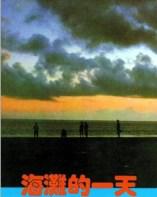Edward Yang is one of the greatest filmmakers who ever lived. He is also one of the most underappreciated. Not that people hate him, simply that they don’t even know he existed, and few mourned when he passed away. I discovered A Brighter Summer Day two years back, when a friend downloaded it and told me only this: “It’s a rare Taiwanese film, and you need to see it.” Over the course of two nights, I watched this magnificent four-hour masterpiece and when I was finished I immediately went online to see what other films I could find from this director. I was saddened to learn he had only directed seven films, and only one of these seven was available on DVD. That film was Yi Yi, which I sought out and watched. It blew me away in the same manner as A Brighter Summer Day. At that point, I knew I had discovered someone amazing. But he had died. In 2007, Yang succumbed to colon cancer while staying in California, shortly before his sixtieth birthday. This remarkable genius would never make another film, and stunningly, none of his films other than Yi Yi were available on DVD. I had to find out more about him. He is the study of this week’s Profile post.

Yang was born in China in 1947 and shortly moved to Taiwan, where he spent most of his life. After studying computer engineering, Yang was inspired by the films of Michelangelo Antonioni and Werner Herzog to become a filmmaker. After directing a short called
Desires which was used as part of an anthology called
In Our Time, Yang made his feature debut with
That Day, On the Beach. The film is the story of two friends who reunite after thirteen years apart, and is a painful but beautiful study of modern Taiwan. This was the first of many films that would deal with social and moral issues in a tense political and mental time. His next film,
Taipei Story (which, in its title alone, marked the beginning of his comparisons and references to the great Yasujiro Ozu), was another tale of struggle in a modern society as a young man dreams of traveling to America with his alienated girlfriend. The lead character in this film was played by Hsiao-hsien Hou, the famous Chinese director of films such as the 1989’s excellent
A City of Sadness.
Yang’s next film,
The Terrorisers, was recently released on DVD by Sony (though I only learned of this a few days ago), a multi-character epic narrative that is now among the more well-known Yang works for its cynical attitude and complex tale. However, it wasn’t until 1991, when Yang completed his fourth film (and his greatest of all time),
A Brighter Summer Day, that Yang fully told an ensemble story with an overwhelming runtime that allowed everything to smoothly play out uninterrupted on screen. At four hours, the film is Yang’s longest, but also arguably his best. The story of angst, violence, and emotional turmoil in 1960s Taiwan, the film was dominated by its setting, its great characters, its riveting plot and its tremendous sense of its time and place.
His next film
A Confucian Confusion was another ensemble piece, this time returning to modern Taiwan, in the city. After that was
Mahjong, which introduced foreign actors and characters into modern Taiwan, giving them plenty to do and a great plot for it to unfold within. However, these two films seemed like in-between pieces, a bridge between the far greater
A Brighter Summer Day and Yang’s final film, the masterpiece
Yi Yi. The film was another true epic for Yang, focusing on the life of a whole family, from a wedding to a funeral, and everything in between. The film is masterfully directed, and nothing short of fascinating for every minute of its three hours. If there is one Yang film I can recommend, this has to be it. I am forever grateful to the Criterion Collection for their stunning release of the film, which I plan to buy soon.
After Yi Yi, Yang was content to retire. He was beginning a long and painful battle with colon cancer, to which he would succumb in 2007. This was a man who had only directed seven features, but had unknowingly become one of cinema’s greatest. To see films such as A Brighter Summer Day and Yi Yi is to see true filmmaking at its finest. There is simply nothing more we can ask of a director.





